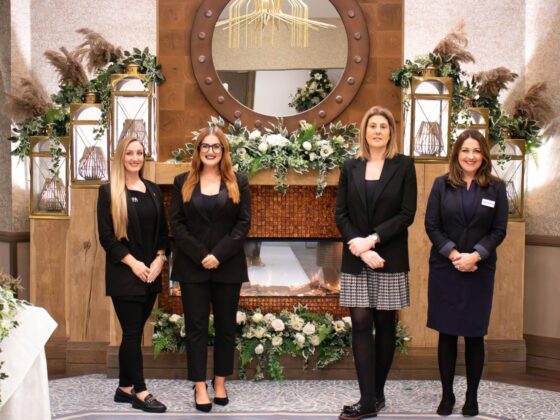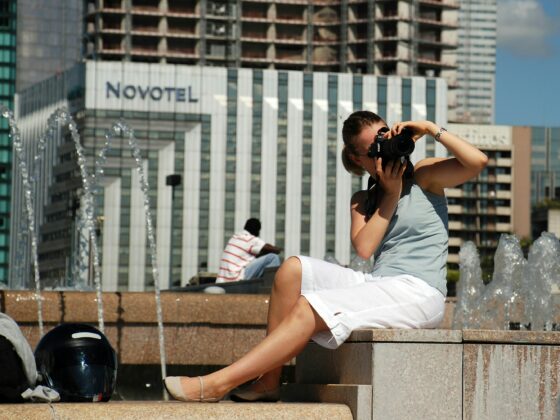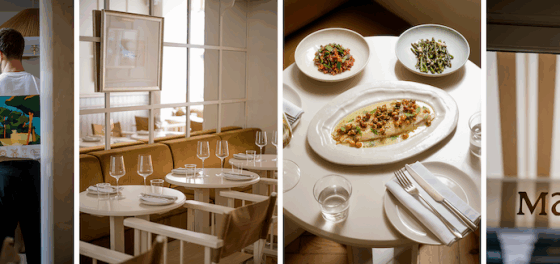A recent Shiji Buzz webinar tackled a question central to the hotel industry: Is the dream of a seamless, fully integrated hotel tech stack slipping out of reach as complexity grows? As more technology enters hotels, the tech stack becomes an unmanageable labyrinth. Integration, data security, and system management have become significant pain points for hoteliers. This discussion, moderated by Daniel Craig from Reknown and joined by Nikkie Singh from Shiji, Howard Phung from Pro-Invest Group, and Terence Ronson from Pertlink, discusses the current state of the hotel tech stack—its triumphs and deepening challenges—and offers a glimpse into the industry’s possible future.
Takeaways
Guest experience is the ultimate test:
Technology must always answer one question—does it genuinely improve the guest’s stay?
Integration is key:
It’s not about the number of systems but how well they integrate. Poor integration can harm operations.
PMS evolution: The PMS is now just one part of the broader ecosystem. Explore how to use PMS data across platforms.
Adopting the cloud:
Cloud migration should be strategic, focusing on systems that benefit most from the transition.
Artificial Intelligence:
AI has great potential but needs thoughtful application. Focus on practical uses that deliver real value.
The modern hotel tech stack: A shifting landscape
One central idea emerged repeatedly during the discussion: the pursuit of the ‘ultimate tech stack.’ What defines the ultimate tech stack, and how close are we to achieving it? The panellists agreed that a combination of systems working seamlessly together provides the best solution for most hotels.
Howard emphasised the need to align technology with a clear business strategy, noting that each hotel’s tech stack should reflect its operational goals.
The ideal tech stack should prioritise scalability, integration capability, and alignment with the customer journey, recognizing that what works for one brand may not suit another. He suggested five core technologies essential for a modern, customer-focused tech stack:
- Enterprise middleware – The backbone of the stack, responsible for ensuring smooth data flows and integration.
- Customer platform – Recognizes repeat guests and uses data to enhance personalised services.
- Distribution technology – Encompasses the central reservation system and ensures easy guest conversions.
- Property management system (PMS) – Manages all core hotel operations, from reservations to housekeeping.
- Customer experience platforms – Orchestrates the entire guest journey, from web check-ins to automated service optimisation.
“Technology is meant to streamline hotel operations and improve the guest experience, not make things more difficult.” Howard Phung


Despite optimism about technology’s potential, scepticism remains about whether a one-size-fits-all platform can meet the industry’s needs. Gartner’s research shows that customisation and flexibility are key, as rigid platforms often fail to adapt to specific properties. Nikkie noted that while a unified solution sounds ideal, the hotel industry is far from this vision. Each property’s business model shapes its tech stack, requiring multiple specialized systems to coexist.
Complexity vs. Efficiency
System integration remains a significant challenge in hotel technology. The panel agreed that expecting a one-size-fits-all platform is unrealistic for diverse hotel operations. Instead, they suggested hybrid models integrating best-of-breed solutions while ensuring seamless data flow, aligning with industry trends toward modularity.
However, this approach has challenges, especially with interoperability, often leaving hotels with disconnected systems. APIs, described by Terence as “digital bridges,” are crucial for enabling communication between systems and future-proofing hotel technology. Many legacy systems lack modern API capabilities, complicating integration. A Skift study found that nearly 60% of hoteliers face higher costs and inefficiencies when managing disconnected systems.
The role of PMS
The conversation tackled an important question: Has the PMS lost its central role in the tech stack? While some argued that the PMS remains pivotal—holding guest data and linking numerous interfaces—others questioned whether the evolution of specialised platforms might be shifting the balance.


PMS systems were initially conceived as the central hub of hotel operations.
Focusing on guest experience and personalisation requires more open and flexible systems than the traditional PMS model. The industry is moving towards a hospitality platform approach, where the PMS is one of many connected components rather than the core.
Realities and reservations of the cloud
Cloud migration is often seen as the future of hotel technology, but challenges like data security, compliance, and costs hinder adoption. Cloud technologies can transform the industry with rapid deployment and easier integration, yet full adoption still seems far off for most hotels.
Nikkie suggested a hybrid approach will likely continue. Legacy systems are deeply entrenched, making complete cloud transition difficult. The industry’s future may lie in a mix of cloud-native, on-premise, and hosted systems until full cloud adoption is feasible. Some, however, advocate for an aggressive shift to the cloud, citing its flexibility, scalability, and long-term savings.


Nikkie Singh
While a hybrid approach may temporarily balance operational flexibility and regulatory compliance, momentum is shifting towards fully embracing cloud technologies as they become more secure and cost-effective. Streamlining compliance management and handling complex operations more efficiently.
Transforming operations and experiences
The panel discussed AI in hospitality, highlighting its potential to improve efficiency and guest personalisation through chatbots, upselling, and predictive maintenance. However, scepticism remained about replacing systems like the PMS with AI-driven platforms. Concerns were also raised about “AI hype” and its misuse in marketing—such as chatbots overpromising or AI systems creating impersonal guest experiences when poorly implemented.
Every vendor seems eager to showcase their AI integration, but how many use it meaningfully? The discussion highlighted practical applications—such as energy management and personalised marketing—where AI has delivered notable results. AI-based upselling has led to substantial revenue gains, proving its value in specific applications.
For many hotels, AI’s integration into operational processes comes with a learning curve, not to mention the risks of mishandling guest data. The message was clear: AI is not a one-size-fits-all solution, but it can be a powerful tool when applied responsibly, with proper safeguards in place.
Measuring success
The accurate measure of hotel technology is its impact on the guest experience. No matter how advanced a tech stack is, it has failed if it leads to a poor check-in process or impersonal interactions.
The panel agreed that guests don’t care about the systems used; they care about their experience. Technology should work seamlessly behind the scenes to empower staff and create memorable stays. Terence referenced Steve Jobs’ idea: “It just works.” Unfortunately, many hotels have fragmented systems that fall short of this ideal.
Not every guest wants a high-touch digital experience. Some want simplicity—clean rooms, smooth check-in, and a pleasant stay. Hotels must ensure their technology aligns with guest preferences and doesn’t alienate those who prefer less digital interaction.
Conclusion
The group’s discussion only reiterated we are an industry at a crossroads—one where opportunities and challenges coexist in equal measure. While the utopian vision of an integrated, seamless technology ecosystem may be slipping away, the potential for improvement is evident.
Ultimately, technology should simplify operations and elevate the guest experience. Mobile check-in platforms, digital concierge services, and automated guest messaging have simplified guest interactions and enhanced satisfaction. Yet, this requires careful selection, proper integration, and realistic expectations from hoteliers and vendors. One thing is sure—a thoughtful, balanced approach to technology will determine which hotels lead the charge and which ones fall behind.
Watch the entire webinar here:
[embedded content]








